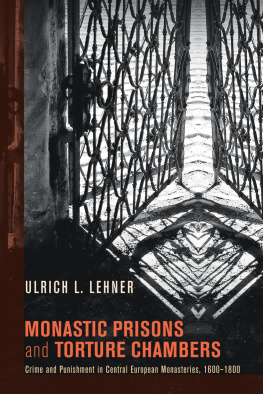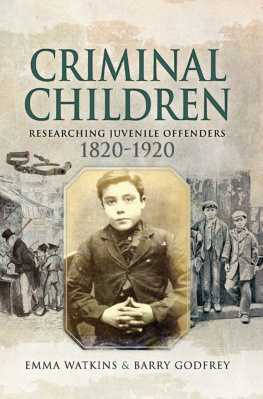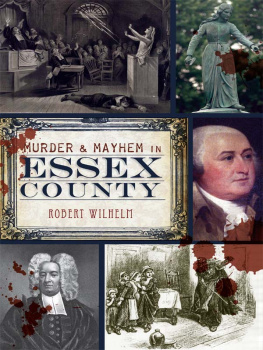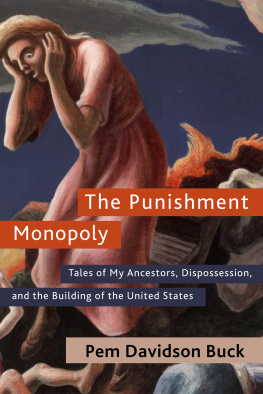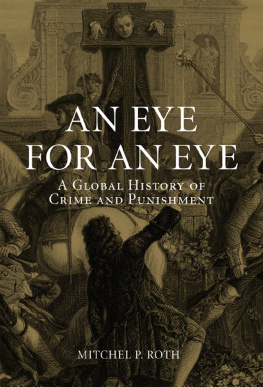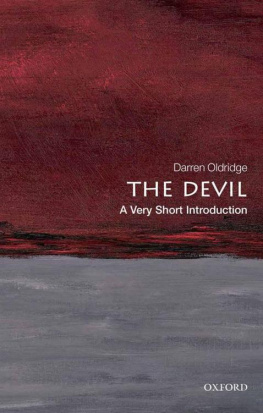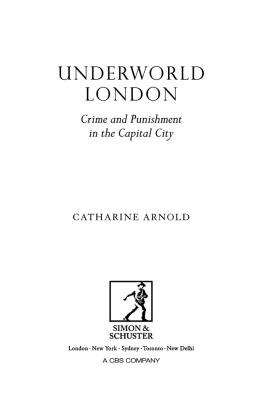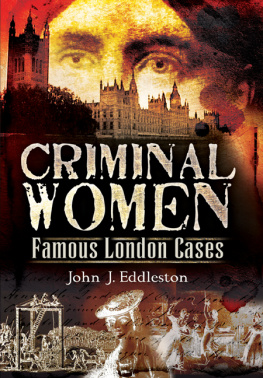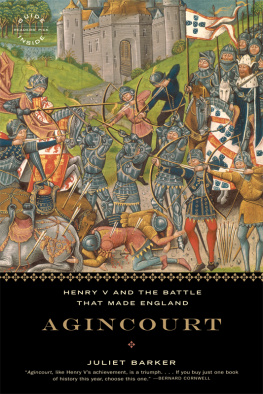The DEVIL
Made Me Do It!
And yet all this severity of punishment could not suppress the breaking out of sundry notorious sins, especially drunkenness and uncleanness; not only incontinence between persons unmarried, for which many both men & women have been punished sharply, but some married persons also The Devil should take some blame, being determined to cast a blemish and stain upon us by tempting Saints into sin.
WILLIAM BRADFORD, GOVERNOR OF PLYMOUTH COLONY, 1642
To buy books in quantity for corporate use or incentives, call (800) 962-0973 or e-mail premiums@GlobePequot.com.
Copyright 2012 by Juliet Haines Mofford
ALL RIGHTS RESERVED. No part of this book may be reproduced or transmitted in any form by any means, electronic or mechanical, including photocopying and recording, or by any information storage and retrieval system, except as may be expressly permitted in writing from the publisher. Requests for permission should be addressed to Globe Pequot Press, Attn: Rights and Permissions Department, P.O. Box 480, Guilford, CT 06437.
Library of Congress Cataloging-in-Publication Data
Mofford, Juliet Haines.
The devil made me do it! : crime and punishment in early New England / Juliet Haines Mofford.
p. cm.
Includes bibliographical references and index.
ISBN 978-0-7627-7165-3
1. CrimeNew EnglandHistory17th century. 2. TrialsNew EnglandHistory17th century. 3. PunishmentNew EnglandHistory17th century. 4. New EnglandHistory17th century. I. Title.
HV6793.N295M64 2012
364.9740903dc23
2011038537
Printed in the United States of America
10 9 8 7 6 5 4 3 2 1
Note to the reader: the Georgian Calendar that we all use today, with the year beginning on January 1, has been in use since 1582. The English however continued to use the earlier Julian Calendar with the first day of each new year being observed on March 25. New Englanders, following British tradition, did not adopt the Georgian Calendar until 1752. Many dates presented throughout the text will appear for example as 1692/3 since this is how dates from the first of January through March are designated in history books, court records, and other primary sources.
PREFACE
IT WAS THE FIRST DAY OF SEPTEMBER IN THE YEAR 1640, AND NEARLY every man, woman, and child in the village was gathered outside the meetinghouse to witness the whipping of Thomas Pinson. His new wife, Joan, would not be flogged, but there she was, locked in the stocks. Tears streamed down the young womans face as the small group of laughing boys took turns pelting her with rotten fruit and raw eggs.
They need not suffer such punishment, a woman said, had they paid the fine.
Too poor to pay, commented an older man.
Tis a pity, for the two be husband and wife now, another villager remarked.
Fornication before marriage, that be their crime, the town minister announced. It is Gods will they are punished for such a sin.
Court records reveal that early New Englanders were more apt to be lusty swains and loving maids than what is portrayed by those dour images traditionally associated with Puritans. Their earthiness and wanton dalliance hardly fits stereotypes from Hawthornes historical fiction and the traditions found in the poetry of Longfellow. Examples of cases brought before the bench on grounds of fornication and illegitimacy provide proof that Puritans and Pilgrims participated wholeheartedly in earthly delights. Indeed, the attitude prevailing among seventeenth-century ministers and magistrates was that pleasures of the flesh were to be thoroughly and frequently enjoyed within the confines of marriage, so long as they took second place to honoring the glory of God through daily prayers. There were penalties for those who broke colonial moral rules and enjoyed such delights outside of matrimony, and for breaking numerous other laws that seem humorously quaint to us today.
Crime needs to be examined within its cultural context and punishment, viewed in terms of its social, religious, and political background. Today, Joan Andrews would not be forced to wear a T for Theft upon her bodice for placing stones in the firkin of butter she sold a client. A husband and wife experiencing marital discord would never be locked side by side in the village square beneath a sign reading QUARRELSOME COUPLE. And Lydea Abbot would certainly not be made to suffer in the stocks for uttering ten profain curses.
Whether it was Sabbath-breaking, blasphemy, or drunkenness, colonial laws were frequently broken, and those who broke them could expect swift punishment. Laws were designed to reflect Puritan ideas of ensuring Gods blessings upon the community, as well as to tightly maintain order in ways that would benefit the entire colony. Some of the ways that seventeenth- and early-eighteenth-century New England communities dealt with murder and mayhem seem brutal to us today. The use of public humiliation to deal with offenders and modify community behavior at the same time has become a staple in period movies and seems an amusing custom, but it was a grave matter for colonists. Each neighbor had a role in preserving family values and keeping the community safe from railing scolds, vagabonds, malefactors, and malefic witches.
As we look at these laws and customs in relation to colonial crime, many questions arise. How did gender, race, and social status impact the punishments that were doled out? Who made the rules and passed judgment? Did the punishment fit the crime? Why were hangings considered public entertainment and attended by enthusiastic crowds? Modern technology and recent scholarship offer new and innovative methods of reexamining history so we are now better equipped to reevaluate the past and recognize many long-treasured myths as folklore or, simply, false.
Drawing from seventeenth- and eighteenth-century trial records, official documents, sermons, contemporary accounts recorded in personal diaries and journals, prison-keepers records, broadsides, and even the dying words of condemned convicts, this book investigates selected court cases. Citizens on trial for their lives, witnesses, alleged witches, and judges offer allegations and testimonies in their own words, providing modern readers with a unique glimpse into the colonial justice system and the daily lives of our ancestors. The DEVIL Made Me Do It! provides an opportunity to understand how the people we have come to call Pilgrims and Puritans dealt with the challenges presented by deviant behavior at a time when accused felons frequently pleaded in their own defense, The Devil made me do it!
PART I
The Puritan Way
MASSACHUSETTS BAY COLONY, AS WELL AS PLYMOUTH AND THE NEW Haven and Connecticut colonies, represented a determined attempt to establish a theocracy where every person was expected to live according to a sacred covenant made with Almighty God to establish Christian settlements in the New World. Known first as Non-Conformists, and later as Puritans, these believers were intent upon reforming the Church of Englandthat is, to purify it by eliminating crosses, religious statues, clerical vestments, bishops, and all ecclesiastical rituals that were, in their view, papist. Going a step further, the Separatists, now known as Pilgrims, wished to sever ties with the Anglican Church altogether.
More than simply a preferred way of worship, the Puritan faith provided a guidebook for how they preferred to live their daily lives. For them, worldly existence was not divided into secular and religious realms. They had no concept of a personal pursuit of happiness. It was godliness they aimed to achieve, and they read His Divine Plan into every aspect of earthly existence. Most early New England settlers considered life a contest between good and evil, with each individual on a pilgrimage toward eternal salvation or damnation. This world presented continual challenges and obstacles that were to be considered tests of ones faith. Satan placed endless temptations along the path to righteousness in hopes of thwarting each individuals commitment to God. Should a community suffer an epidemic or crop failure, it signaled a warning from the Lord that the congregation had grown lax about attending worship services or tolerating sin.


